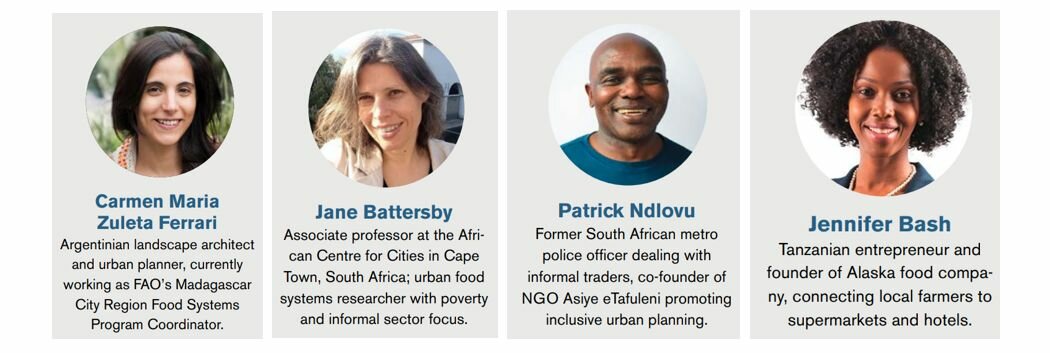The recent Helvetas Symposium: The Hungry City brought together international experts to discuss entry points and measures for strengthening urban food systems in the Global South.
Ensuring food and nutrition security for all will require ideas, interventions and collaboration from stakeholders of all levels. "Hunger and malnutrition still affect a large part of the global population," said Melchior Lengsfeld, Executive Director of Helvetas. "Today there are still major impediments to sustainable development. We can't just tweak our approach to addressing hunger. We need to find fundamentally different approaches. "
Where does Helvetas fit into this narrative? We asked event panelists to share their thoughts on the connection points between development cooperation and food systems.

What role should international development organizations play in supporting food systems that are more inclusive and sustainable?
Carmen: First, support city governments. Provide capacity building for city planners and decision makers. Cities are closer to people. Sometimes programs supported by international organizations go directly to national governments. There’s a huge gap between what national governments propose or do to improve food systems and what the NGOs are doing at a small-scale level of intervention. Also, encourage cities to include food in their planning of space as a driver for sustainable development.
Support cities in learning from what they already do. Data is there but it is not being collected or shared; there are no resources dedicated to learning from what people in the city know and what they are doing. You do not need to invent that much. Put value on what’s already being done.
Support multi-actor approaches. Help cities to work together with other people. Sometimes local governments want to improvise projects to improve the food system and they insist on doing this alone, wasting a lot of resources. Invest time and money in building the right coalitions. It’s important to have a stronger impact and to build better relationships between the different knots of the system.
Jane: There’s a need for NGOs and development agencies to make sure that they really understand the system that they’re working in before they act. So many times they arrive with a template or a kind of idea of how to operate. We need to invest deeply in understanding the system, and that involves working with government, but also with civil society organizations and the private sector to understand the context before activity starts.
The second point is recognizing the role that outside organizations have in providing support for networking both across cities but also within cities, and working to leverage across power.
The third point is long-term engagement to build capacity and trust. The concern is that sometimes interventions are put in place, and then the support to make sure they last over the long term gets lost.
Patrick: We need collaboration between different organizations that are like-minded. There are progressive policies that hold the government and city officials accountable; the policies are there but they’re not being implemented. If we’re all speaking with one voice and ensuring that government officials and city officials are all implementing, we will succeed.
Jennifer: The panelists are all coming from different areas of the world, and we have a shared common goal. But based on the background or place you are coming from, what works in Europe is not the same as what works in Africa. We might have a shared vision, but we don’t have a shared process for getting to the shared vision.
This brings us back to Jane’s point on understanding the existing systems. Without that, we might enter come with the mindset of what has worked in Europe and want to implement it in East Africa. If you take time to understand the gaps and challenges in East Africa, then we can actually work towards solving the challenges and not assuming that it’s a one-size-fits-all solution.
Blended financing is crucial. This is bringing in the private sector, but also development partners to work together to be able to achieve more.
The third point is capacity building for the smallholder farmers who are very good at farming but don’t understand the perspective of the market demand. We must also build capacity for all the actors in the value chain.
We must also consider knowledge and technical know-how. How do we share knowledge? How do we accommodate the accommodate the challenges of one place and come up with a solution through knowledge sharing?

